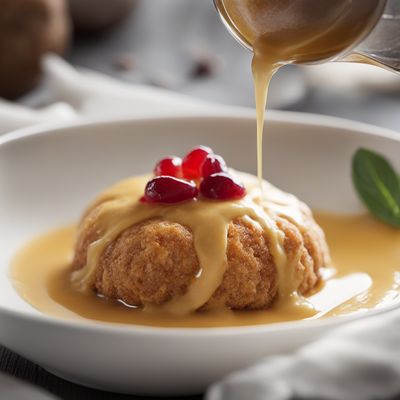
Ingredient
Jam, plums
The Sweet Preserve
Plum jam is made by cooking ripe plums with sugar, resulting in a thick and luscious spread with a vibrant color and a sweet-tart taste. It has a smooth and slightly chunky texture, with small pieces of plum skin adding a pleasant texture. Plum jam is a popular preserve enjoyed on toast, pastries, and as a filling in various desserts.
Origins and history
Plums have been cultivated for thousands of years and are believed to have originated in China. They were introduced to Europe by the Romans and have since become a beloved fruit in many cultures. Plum jam has a long history and is enjoyed in various cuisines around the world.
Nutritional information
Plum jam is a good source of vitamins, minerals, and dietary fiber. It is also relatively high in natural sugars and calories due to the added sugar during the cooking process.
Allergens
Plum jam may contain allergens such as pectin or citric acid, which can cause sensitivities or allergic reactions in some individuals.
How to select
When selecting plum jam, look for brands that use ripe and high-quality plums. Check the label for any added preservatives or artificial ingredients. Opt for organic or homemade plum jam for a more natural and flavorful option.
Storage recommendations
To maintain the freshness and quality of plum jam, store it in a cool and dark place, away from direct sunlight. Once opened, refrigerate the jam to prolong its shelf life. Use clean utensils to avoid contamination.
How to produce
Plum trees can be grown in home gardens or orchards. They require well-drained soil, full sun, and regular watering. Plum trees can be propagated from seeds or purchased as young saplings. Prune the trees regularly to maintain their shape and health.
Preparation tips
Plum jam can be used as a spread on toast, bagels, or pastries. It can also be used as a filling in cakes, tarts, and cookies. Plum jam pairs well with cheese and can be incorporated into savory dishes like glazes or marinades.
Substitutions
Other fruit jams like raspberry or strawberry jam can be used as substitutes for plum jam, although they may have slightly different flavors and textures.
Culinary uses
Plum jam is commonly used in breakfast dishes like toast and pastries. It is also a popular filling in desserts like cakes, tarts, and cookies.
Availability
Plum jam is commonly available in regions where plums are cultivated, such as Europe, Asia, and North America.
More ingredients from this category » Browse all

Jam, gooseberries
Tart Delight
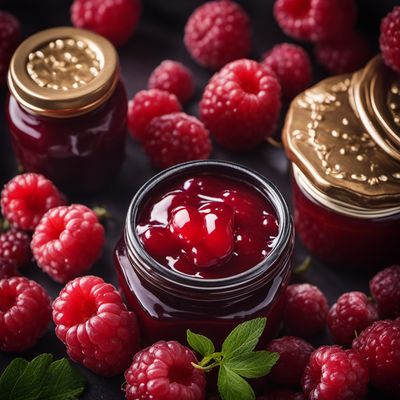
Jam, lingonberry
Tart and Tangy Delight: Exploring the World of Lingonberry Jam
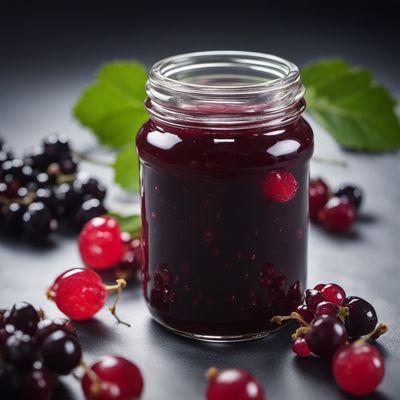
Jam, currants (black)
"The Bold and Tangy Delight: Black Currant Jam"
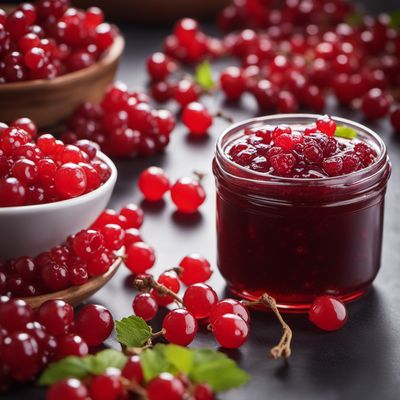
Jam, currants (red)
"Tart and Tangy Delight: Exploring the Vibrant World of Red Currant Jam"
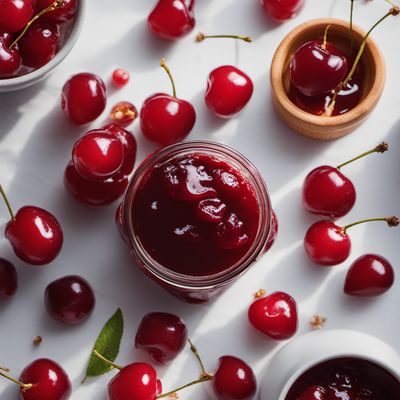
Jam, sweet cherry
"The Luscious Delight: Exploring the Sweetness of Cherry Jam"

Jam, mixed fruit
"A Symphony of Fruity Delights: Exploring the World of Mixed Fruit Jam"

Jam, cranberries
Tart and Tangy Delight: Cranberry Jam

Jam, oranges
Tangy Citrus Delight: Exploring the World of Orange Jam

Jam, apricots
The Sweet Preserve

Jam, peaches
Sun-Kissed Delight: Exploring the Sweet Symphony of Peach Jam

Jam, blueberries
Bursting with Blueberry Bliss: The Delightful World of Blueberry Jam
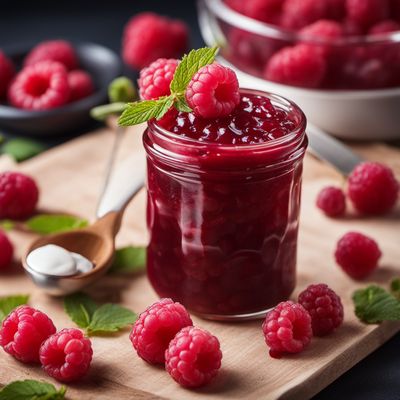
Jam, raspberries
The Essence of Summer
